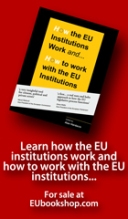There’s a lot serious stuff going on in the world at the moment. But somehow the center of attention is a young man who has managed to piss of some politicians and generals by publishing documents that proves what most people already know – or at least suspected. The WikiLeaks founder Julian Assange is now subject to the most intense manhunt by international authorities since Osama bin-Laden for having sex without a condom. The fact that a stack of reports have been issued, warning about further deterioration of the global economy, currency wars, political instability and exploding social unrest, seems to be mostly overlooked. Am I the only one to think it’s a little peculiar?
“The WikiLeaks saga is trying its best to offer distraction, but the crisis in the euro zone remains impossible to ignore.”
Robin Bew

It’s been a strange, almost surreal, weekend. Personally I’ve been fighting off a couple of attempts to hack into my computer system, and never in the 15 years I’ve been online have I ran into so many error messages when trying to load pages on the internet. What makes it even more strange is that the WikiLeaks frenzy is happening at the same time as EU and NATO is conducting its first ever cyber war exercise, the US launch a massive operation to seize close to hundred file-sharing web sites and thousands of hackers all over the world gathered at an event organized by Google, Microsoft, NASA and the World Bank.
And all this have been planned long time ahead. The latest release of documents from WikiLeaks was also notified months in advance.
So was the scheduled release of several economic forecasts for 2011 last week. However, these have more or less been drowned in the avalanche of more or less (un)important Wiki-stories filling up both mainstream and alternative medias.
So, I think it’s time to get the focus back where it belongs; on the developments of our global economy, as the Eurogroup meet for another crisis meeting this Monday and Bloomberg reports that the euro’s worst is yet to come.
“The WikiLeaks saga is trying its best to offer distraction, but the crisis in the euro zone remains impossible to ignore. With fears of contagion increasing, our ViewsWire service examines scenarios under which countries might exit the single currency,” chief economist Robin Bew at The Economist Intelligence Unit writes in an email to subscribers. Adding: “We think the euro will ultimately survive, but significant political and economic hurdles will have to be overcome, with Portugal now likely to follow Ireland and Greece in requesting emergency EU/IMF funding.”
Last week EIU released a bunch of reports, based on separate analysis on each topic.
You have to look very hard to find something positive to hold on to. In fact, I can’t remember having read anything like this from The Economist in a very long time.
This is the headlines:
- Sovereigns default as public debt spirals out of control
- New asset bubbles burst, creating renewed financial turbulence
- Tensions over currency manipulation lead to a rise in protectionism
- Developed economies fall into a deflationary spiral
- Economic upheaval leads to widespread social and political unrest
- The global economy experiences a double-dip recession as stimulus fades
The EIU label the three first predictions with “High Probability,” the next three as “Moderate Probability” and the two last are seen as “Low Probability”.
As I’ve been pointing out since the financial crisis became visible to most people, we are in fact dealing with a three-part crisis; the financial, the environmental and the social.
There three problems are connected, they interact with each other, feeds on each other, making each other stronger – and it’s impossible to solve one without solving the others.
Robin Bew writes:
“The UN climate summit under way in Cancún, Mexico is highly unlikely to produce a global accord on emissions cuts, though modest gains, such as on forest protection, remain possible.”
Well, the possibility of rescuing a few trees is not gonna make much difference.
As for the social (poverty) crisis, Economist Intelligence Unit concludes:
“The risk is that instability becomes systemic, with political crises in certain countries affecting others through contagion or through the actions of populist new regimes seeking to assert themselves. Potential widespread disruption poses a considerable downside risk to the Economist Intelligence Unit’s global economic forecasts.”
That’s right. Sovereign debt problems isn’t the only thing that is contagious.
“The Economist Intelligence Unit‘s baseline global forecast assumes some increase in social and political unrest, but with serious fallout largely avoided. If economic circumstances were to worsen again, however, there is a danger though that incidents of unrest turn into far more intense and long-lasting events: armed rebellions, military coups, civil conflicts and perhaps even wars between states. In such circumstances, a repetition of the pressures that transformed global politics in the 1930s, though a far-removed worst-case scenario, could not be dismissed.”
In other words: If the economy gets worse, we may face a World War II scenario.
Now, take a look at the top three scenarios again…
First: Sovereign debt
“There are considerable concerns about the sustainability of public debt positions in a number of countries. Heavily indebted sovereigns – including developed economies, notably in the euro zone – could struggle to raise private financing even at higher interest rates, and some could default.”
“The US and the UK also face drastically increased fiscal deficits. They could moderate their debt burdens through inflation and devaluation but this risks undermining their bond markets, and the resultant spike in bond yields could force an acceleration of fiscal tightening, with highly negative implications for economic recovery.”
“Emerging-market defaults would create some ructions more widely, but as developed-country sovereign bonds have traditionally been considered risk-free, developed-country defaults in particular would wreak havoc on investor psychology. Banks would face write-downs on their government debt portfolios, and financial-sector guarantees by governments that default would be exposed as worthless.”
(Forecast: High probability, high impact, risk level 16)
Second: New Asset Bubble
“A flood of cheap money from stimulus measures, in particular carry trades drawing on record-low interest rates in the US, prompted a strong rally in a range of assets in the second half of 2009 and in 2010, particularly emerging-market stocks and bonds, but also in risky asset classes such as equities, high-yield bonds and commodities more broadly.”
“New bubbles could continue to grow for a considerable period of time, potentially several years, during which they will help to boost growth in the economies concerned. But they would burst suddenly, and still-fragile risk appetite could be a factor in this – a decline in risk tolerance could see investors pull their money out of emerging-market assets. Indeed, the rally in asset markets has been subject to periodic reversals in 2010 as concerns about the outlook for the global economy have re-emerged.”
“New asset bubbles may be vulnerable to painful corrections as central banks in emerging markets tighten monetary policy, fiscal stimulus is withdrawn, and the weak foundations of recovery become apparent. The resultant dislocations, including a shock to banks and a renewed rise in risk aversion, would reinforce and deepen a new economic slowdown.”
(Forecast: High probability, high impact, risk level 16)
Third: Currency Manipulation
“Tensions are rising over attempts by some countries to weaken their currencies, and the US and China remain at odds over the value of the renminbi. A global “currency war” would raise the danger of protectionist responses.”
“Tensions over exchange-rates have risen in recent months. The US Congress has been holding hearings on China’s exchange-rate policy, with a view to potential legislation to punish China for what the US regards as a mercantilist strategy of keeping the renminbi artificially low. A growing cohort of other countries are also worried about the strength of their currencies, including Brazil, Switzerland, Japan and South Korea. Market interventions by policymakers in some countries to weaken their currencies prompted Brazil’s finance minister, Guido Mantega, to warn of an “international currency war”.”
“Given the closely integrated nature of the global economy, governments will find it difficult to close off many aspects of trade, even if they want to. But trade disputes are likely to increase as populist policies clash with countries’ international obligations.”
(Forecast: High probability, high impact, risk level 16)
All eight summaries are uploaded on Scribd.
By the way – here’s the latest WikiLeaks stories:
WikiLeaks founder Julian Assange arrested in UK (BBC)
Feds block workers from WikiLeaks (CNET.com)
MasterCard pulls plug on WikiLeaks payments (CNET.com)
Swiss Bank Closes WikiLeaks Founder’s Bank Accounts (RadioFreeEurope)
WikiLeaks‘ Swedish servers come under attack again (The Herald Tribue)
Barack Omama Is More Dangerous Than WikiLeaks (American Enterprise Institute for Public Policy Research)
WikiLeaks Releases List of “Vital” US Facilities (Slate.com)
Google refuses to disclose whether they’d allow users to repost Wikileaks‘ State Department cables (The Atlantic)
Related by The Swapper:
- The Guardian Site Crashed During Assange Chat, WikiLeaks Removed From The Internet
- Here’s What You Get For Blogging About Chinese Banks
- US Governor, Canadian Official, Sarah Palin; Call For Assassination Of Julian Assange
- WikiLeaks With 5 GB File On Bank of America
- WikiLeaks Under Massive Cyber Attack
- Julian Assange: Journalist, Activist or Informant?
- Swedish Police Drop Rape Charges Against Julian Assange
- US Credit Card User Under Surveilance Without Court Approval
- The REAL Weapon of Mass Destruction
Related Articles:
- WikiLeaks’ Minimal Impact (realclearpolitics.com)
- WikiLeaks stirs debate on info revolution (theglobeandmail.com)
- WikiLeaks whistle blows time on the old game (newstatesman.com)
- You: WikiLeaks all over (nation.com.pk)
- WikiLeaks Founder Continues Morphing Into Movie Villain (politics.usnews.com)
- WikiLeaks: Pakistan Establishment A US Puppet (themoderatevoice.com)
- WikiLeaks summary: Monday, December 6 (telegraph.co.uk)
- Clinton uses WikiLeaks disclosures to draw a laugh (sfgate.com)





























Pingback: Norwegian MP Nominates Wikileaks for Nobel Peace Prize | EconoTwist's
Pingback: The WikiLeaks paradox | The Calculable
Pingback: LeWeb Conference Organizers Looking for Wikileaks Founder Julian Assange | Served Fresh Media™